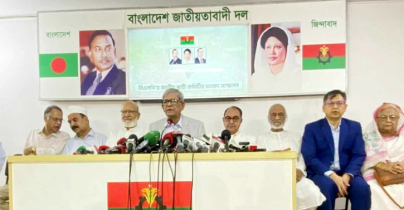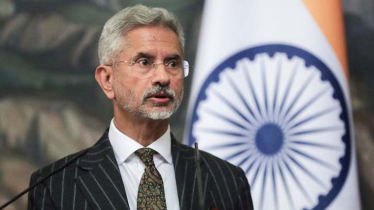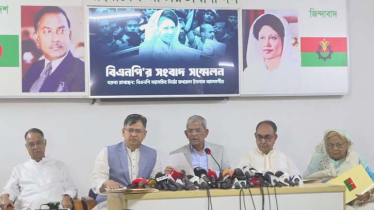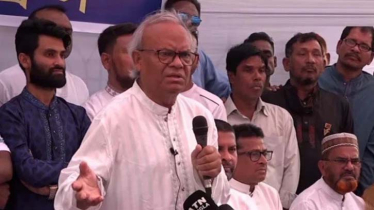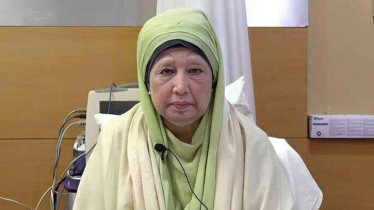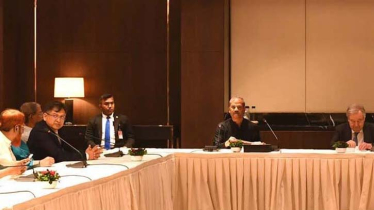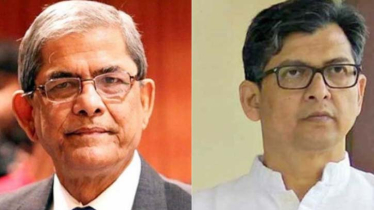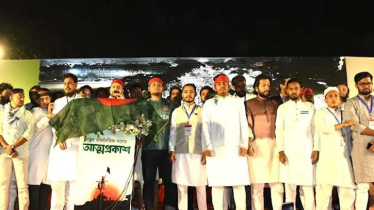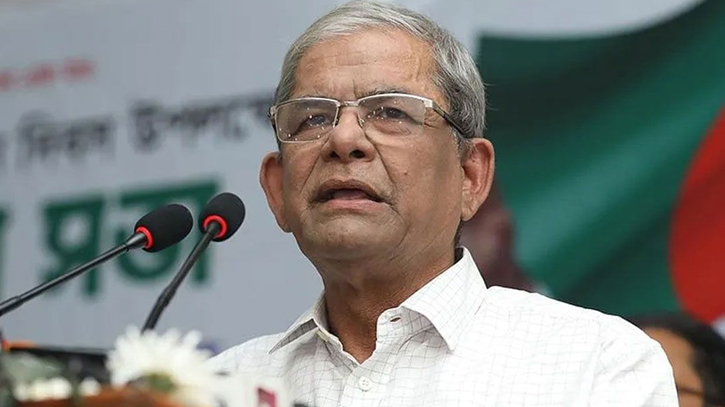
Photo: Collected
Amid speculation regarding its future after being ousted by a student-led uprising, BNP Secretary General Mirza Fakhrul Islam Alamgir believes that neither should the Awami League be barred from participating in the upcoming national election nor banned as a fascist political party, as both actions would undermine democratic practices.
In an interview, he, however, expressed skepticism about the Awami League's prospects for a strong comeback in the political landscape, asserting that the party has become politically bankrupt and increasingly isolated from the public and younger generations due to its anti-people activities and heavy reliance on state forces and bureaucracy during its time in power.
He also urged political parties to remain vigilant and act responsibly, expressing concerns about a potential 1/11-style depoliticisation plot orchestrated by both local and international actors.
This is the first report of a three-part series based on the interview with Fakhrul, in which he discussed a wide range of topics, including the current political situation, government reform initiatives, the upcoming national election, BNP's future plans, and the party's council.
“Why should the Awami League be excluded from the polls if we truly want democracy? If an old political party like Awami League wants to participate in the polls, people should have the chance to determine their fate,” Fakhrul said, expressing his disagreement with those advocating for barring the Awami League from the upcoming national election.
Based on his understanding and perceptions of the Awami League, the BNP leader said it is likely that the party will take part in the election under the current interim government. “After such a big incident and a changeover in 1975, Awami League didn’t boycott the election. It joined the polls and, I think, that was the right strategy for the party.”
Fakhrul said boycotting elections is not always the right approach for democratic parties. “While elections can sometimes be boycotted as part of a movement, as we have done, that was a valid decision. However, when a party faces challenges, there are several avenues for recovery and participating in elections is one of those paths that should be pursued to move forward.”
He also mentioned that the negative tendency to demand the banning of political parties or to exclude particular parties from elections stems from a flawed political culture. “For instance, banning Jamaat-e-Islami was not a justified decision. What has been the outcome? Jamaat has now returned to politics. So, I don't believe it is a right move for the government to impose such a decision.”
Fakhrul, however, said the country’s people will abandon the Awami League, even if it joins the polls, for its nefarious activities and brutal role in suppressing democratic movements.
In response to a question about the possibility of banning the Awami League for 10 years under a draft amendment to the International Crimes (Tribunals) Act, 1973, he acknowledged that this action has been proposed within a legal framework, suggesting that Sheikh Hasina’s party could be banned for crimes against humanity.
“However, I am uncertain how appropriate this would be from a democratic perspective,” he added.
The BNP leader recalled that both the Nazi Party in Germany and Mussolini’s National Fascist Party in Italy were banned. “In my opinion, democracy should function in a democratic manner, and democratic practices must remain operational. While a fascist party can be banned, how can we guarantee that it won’t resurface in a different guise? Look at what is happening in the Western world; pro-Nazi parties are coming to the fore.”
Fakhrul stated that if political practice is unhindered, the people of the country will respond to any party's misdeeds and will find ways to address the actions of a fascist party. “Personally, I am not in favour of banning the Awami League, nor do I support the banning of any political party,” he said.
The interim government has recently prepared a draft to amend the International Crimes (Tribunals) Act, 1973, which introduces a provision that allows the banning of a political party for up to 10 years for committing crimes against humanity and genocide.
When asked about the Awami League's prospects as a political party following its ouster due to a mass uprising, Fakhrul said, “I have long been saying that the Awami League has become politically bankrupt. When a party relies heavily on bureaucracy and state apparatus, it becomes alienated from people and fails to grasp mass demands. This is precisely what has happened to the Awami League.”
He said the Awami League's greatest loss is its diminishing connection with people and their trust, particularly among the younger generation. “While the Awami League may continue to engage in politics, it remains uncertain whether the party can effectively reconnect with the public and regain their trust in the near future.”
Fakhrul said no single party can take credit for the student-led mass uprising, as it was a spontaneous movement involving people from all walks of life, driven by their pent-up anger against the fascist Awami League regime.
He also noted that certain political parties and factions are attempting to malign the BNP in various ways. “This is a result of conspiracies by both local and international actors. We once again sense depoliticisation and malicious plots reminiscent of 1/11. We, therefore, must remain vigilant, as a government in Bangladesh cannot operate effectively without the involvement of politics.”
The BNP leader stated that the country should be governed by those who have a genuine connection with people, rather than by a select group of intellectuals, bureaucrats and technocrats.
Messenger/Fameema

